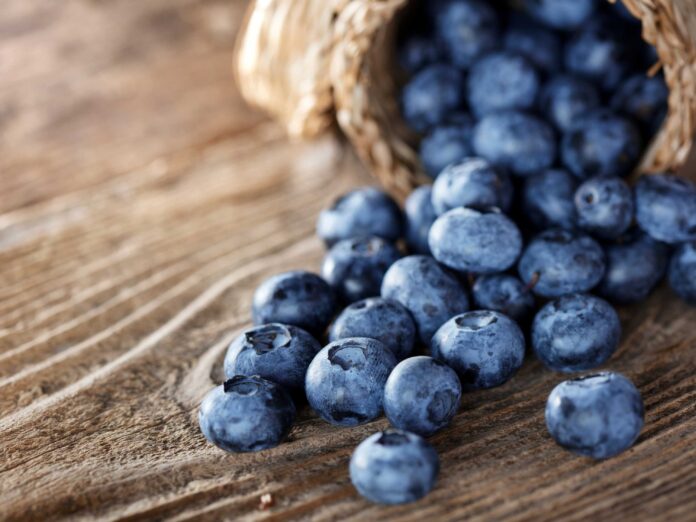Blueberries are small but packed with goodness. These summer berries combine sweet flavour with a wealth of nutrients, making them a favourite for both health and taste. Whether enjoyed fresh, frozen, or dried, they bring benefits – but also come with a few things worth knowing before you eat them by the handful.
Homegrown superfood
With only 46 kcal/100 g, blueberries are low in calories and sugar, have a very low glycaemic load, and help lower LDL cholesterol and blood pressure. Wild blueberries are especially rich in anthocyanin – a powerful antioxidant that protects cells, improves fat metabolism … and turns your tongue blue. Tannins have antibacterial and anti-inflammatory effects, while vitamins C and E boost the immune system. Iron, zinc and especially manganese support healthy cartilage and spinal discs.
Are too many blueberries bad for you?
Blueberries are undoubtedly healthy, but you shouldn’t eat more than 75-100 g a day. Too many can have a laxative effect, and they contain salicylic acid – also found in aspirin – which thins the blood.
Storing
In Luxembourg, local blueberries are in season between July and September. Choose berries that are plump and firm. They’ll keep for around a week in the fridge. Their natural whitish coating helps prevent dehydration, so don’t wash them until you’re ready to eat. To freeze them (for up to six months), wash and dry the berries, pre-freeze them on a tray, then transfer to freezer bags. They can also be dehydrated (50°C, 3-5 hours) with ease.
Wild or cultivated
Most supermarket blueberries are cultivated, mainly in the USA and Canada. These bushes grow up to two metres high and produce large, mild-tasting berries with light-coloured flesh. In contrast, wild blueberries native to this region grow on low bushes (30-50 cm high), are smaller, sweeter, and darker inside.
Outfox fox tapeworm
Opinions differ as to whether the parasite can be transmitted by foxes via wild blueberries. Best play it safe and wash all berries thoroughly before eating. The eggs die at around 70°C – but freezing won’t help, as they survive sub-zero temperatures.
